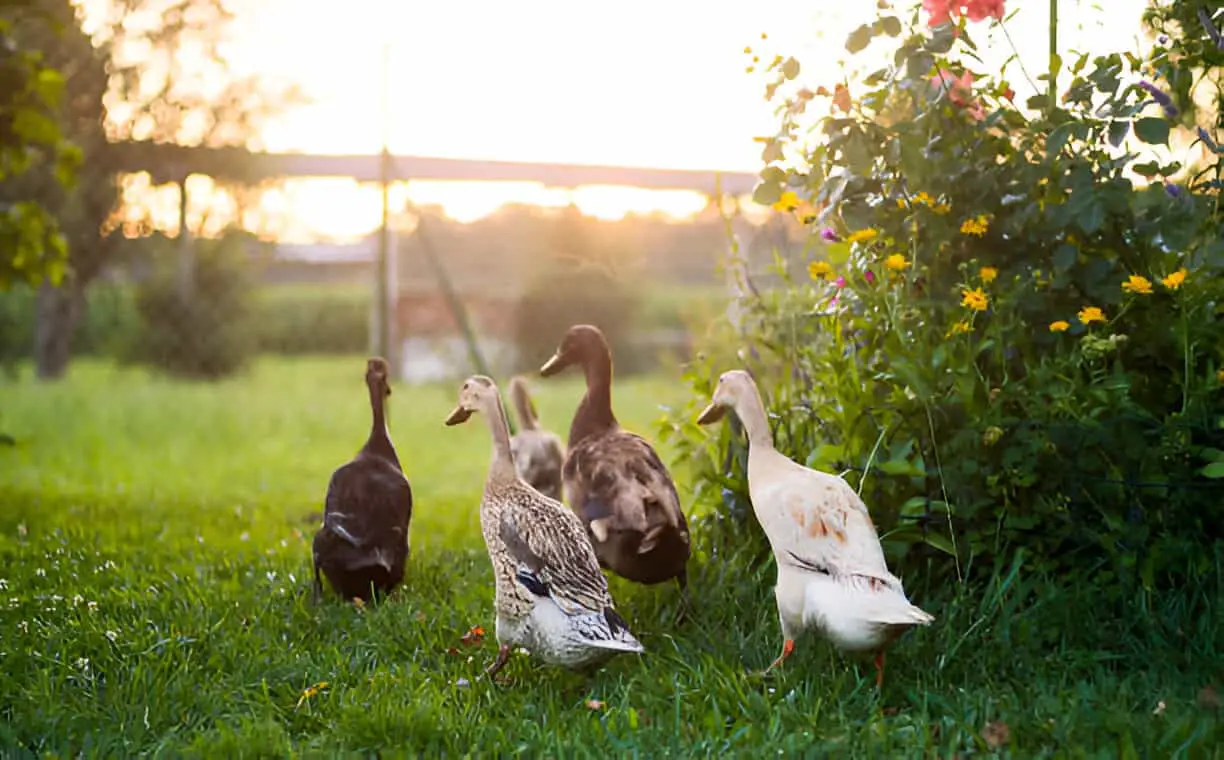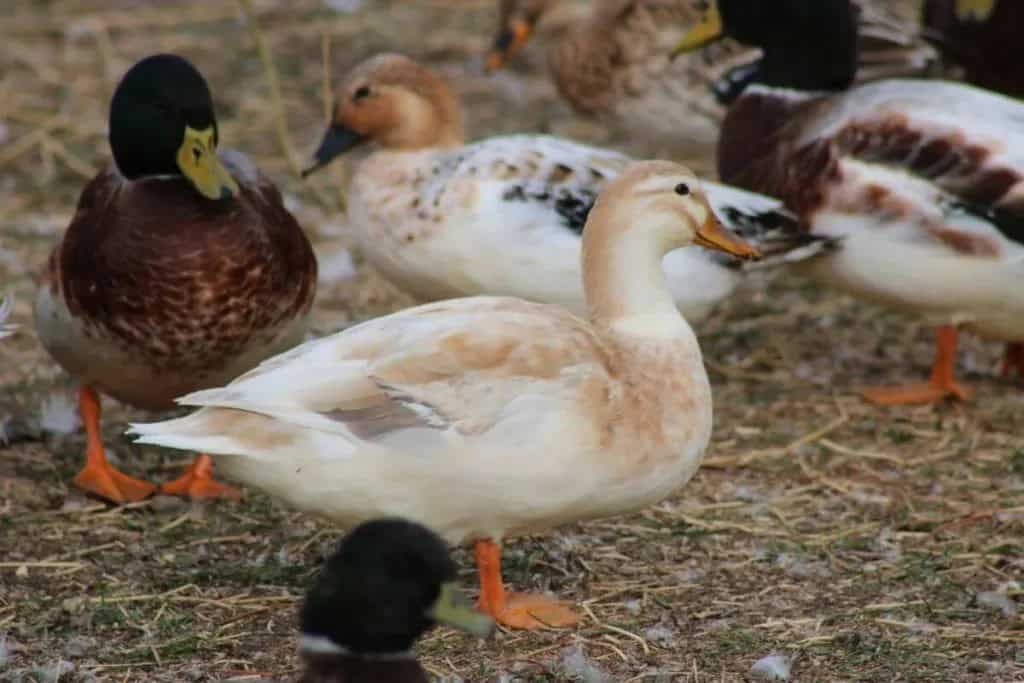How Long Do Ducks Sleep at Night? Can Ducks See at Night?

If you’re a duck owner or just someone curious about our feathered friends, you’ve probably wondered: how long do ducks sleep at night? And, more intriguingly, can ducks even see at night? Ducks are fascinating creatures, and understanding their sleep habits and vision can offer you insights into their well-being and natural behavior. So, let’s dive into these questions and clear up the mystery!
Ducks don’t sleep like we do—they take short naps throughout the night rather than settling in for one long slumber. On average, ducks may sleep 8 to 10 hours total in a 24-hour period, but it’s broken up in intervals. They often sleep with one eye open, keeping part of their brain alert to predators, especially when outdoors.
Now, about night vision—yes, ducks can see in low light! While they don’t have true “night vision” like owls, their eyes are adapted to dim environments. Their vision is sensitive enough to help them navigate safely at dawn, dusk, or under moonlight.
Ducks and Their Sleeping Patterns
When it comes to how long ducks sleep, it’s not as straightforward as you might think. Unlike humans, ducks are light sleepers. Their sleep cycles are very different, especially considering their natural habitat and survival instincts. Ducks usually sleep for about 8 to 12 hours each night, but their sleep isn’t a deep, continuous slumber like ours.
Ducks are crepuscular, which means they’re most active during the early morning and evening hours, so their sleep is typically divided into multiple shorter naps throughout the night. As a result, ducks often wake up several times during the night to adjust their position or check their surroundings. This makes sense because, in the wild, ducks are always on alert for potential predators. They need to remain somewhat aware of their environment, even while resting.
What Affects a Duck’s Sleep?
Several factors can influence how long ducks sleep, such as:
- Environment: Ducks raised in a secure, predator-free environment will likely sleep more soundly than ducks in a more vulnerable or noisy setting.
- Age: Just like humans, the age of a duck plays a role in how much sleep it needs. Baby ducklings, for example, will need more sleep than fully grown ducks to help them develop and grow.
- Health: Healthy ducks tend to sleep well, while sick or stressed ducks may have irregular sleep patterns.
Can Ducks See at Night?
Now, let’s tackle the question: Can ducks see at night? The answer is yes—ducks can see in low light conditions, but not as well as nocturnal animals like owls. Ducks are equipped with excellent vision during the day, which is essential for spotting food, avoiding predators, and navigating through their environment. However, their vision at night is not as sharp.
Ducks have good night vision due to a high number of rod cells in their eyes. Rod cells help with seeing in dim light, while cone cells are responsible for color vision in brighter light. So while ducks can see in the dark, they rely more on their other senses, such as hearing, smell, and their ability to detect motion. At night, they likely use these other senses more than their vision to stay safe.
A Duck’s “Sleep Mode”

When ducks sleep, they often enter what’s called unihemispheric slow-wave sleep (USWS). This means that one half of their brain is awake while the other half is resting. It’s a fascinating survival tactic because it allows them to keep an eye out for predators, even when they’re technically “sleeping.”
Additionally, ducks sleep with one eye open—literally! They can keep one eye alert while the other rests. This way, they can sleep but still stay vigilant, making sure that any threats are spotted before they become a danger. This is a behavior shared with other waterfowl and even some marine animals.
Do Ducks Need Complete Darkness to Sleep?
While ducks can sleep in the dark, they don’t necessarily need total darkness to do so. In fact, many ducks sleep just fine with a bit of light around them. However, ducks raised in more natural environments will likely sleep better when the sun goes down and the natural light dims. Light affects their sleep cycles just like it does in humans—if it’s too bright, they might stay awake a bit longer.
If you raise ducks in a coop or pen, it’s important to provide them with a safe, quiet space to sleep. Too much noise or light can disrupt their rest and cause unnecessary stress. A darker, calmer environment can help them get the deep, restorative sleep they need to stay healthy and alert the next day.
The Importance of Sleep for Ducks
Just like us, ducks need sleep to recharge and maintain their health. Sleep helps with everything from immune function to memory consolidation. When ducks don’t get enough rest, it can impact their ability to forage, navigate their environment, and even protect themselves from predators.
For duck owners, ensuring that your ducks have a comfortable and safe place to sleep is crucial. Make sure their coop is secure, free from drafts, and large enough to allow them to stretch out comfortably. A good night’s sleep makes all the difference for ducks’ overall well-being.
| Read: Will Your Ducks Return to the Coop at Night? Here’s What to Expect |
Duck Sleeping Habits: A Quick Recap
| Factor | Details |
| Sleep Duration | Ducks sleep 8-12 hours a night, but in shorter intervals. |
| Activity Pattern | Ducks are crepuscular, active at dawn and dusk. |
| Vision at Night | Ducks can see in low light, but not as well as nocturnal animals. |
| Sleep Mode | Ducks sleep with one eye open, using unihemispheric slow-wave sleep. |
| Ideal Conditions | A dark, quiet, secure environment helps ducks sleep better. |
Conclusion: Understanding Your Ducks’ Needs
So, how long do ducks sleep at night? About 8-12 hours, but in shorter stretches due to their natural instincts. Can ducks see at night? Yes, but not as well as during the day. They rely on other senses to navigate and stay safe at night. Understanding these unique traits can help you take better care of your ducks, ensuring they’re comfortable and healthy. Providing them with a proper sleeping environment will help them get the rest they need and keep them happy during the day.
Ducks are amazing creatures, and once you understand their natural rhythms and behaviors, caring for them becomes so much easier. Whether you’re raising them for eggs, meat, or simply as pets, making sure they get enough sleep and proper care will ensure they thrive.






